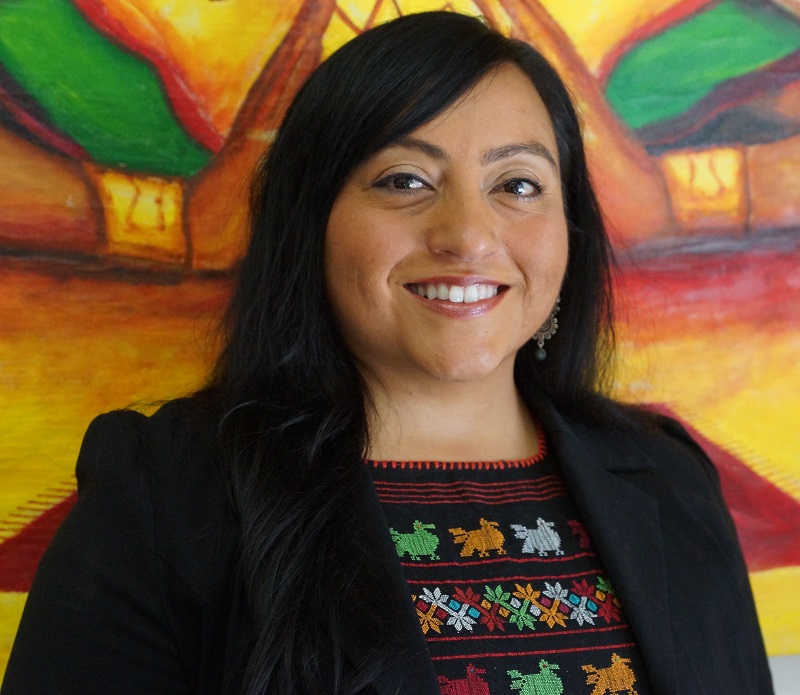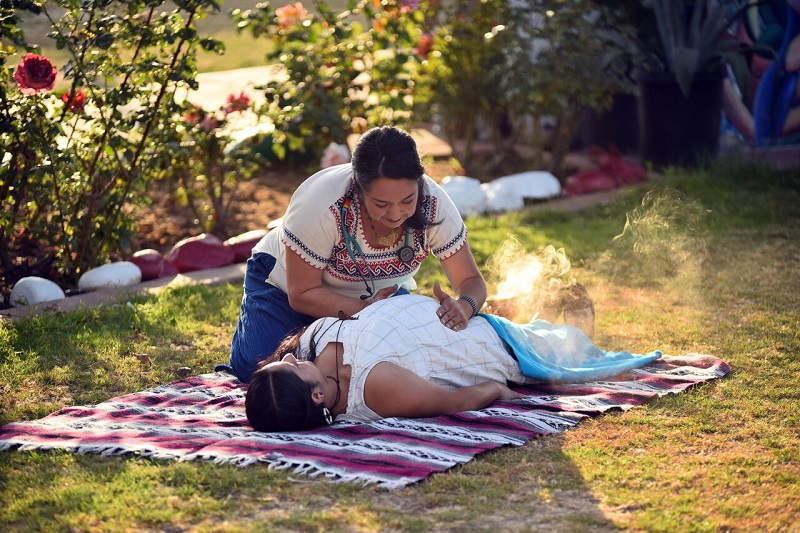CAMARILLO — A CSU Channel Islands (CSUCI) professor and the program manager for the Mixteco Indigena Community Organizing Project (MICOP) plan to create a doula program with a competitive grant they received from the National Center for Science and Civic Engagement (NCSCE).
Chicana/o Studies Assistant Professor Jennie Luna, Ph.D. and Vanessa Terán of MICOP are heading the project, which was one of only four in the nation to receive the prestigious award.
The three-year grant will allow Luna and Terán to develop culturally sensitive doula training programs designed for Mixteco and other Indigenous expectant mothers giving birth in local hospitals.
The first event of the ongoing program is a public presentation on March 14 from 12 to 2 p.m. in which a midwife from San Diego will speak about her work on the border in Tijuana.
“Birthing sin fronteras: midwifery and reproductive justice on the border” by Tema Mercado will be in Room 1320 in the John Spoor Broome Library at One University Drive in Camarillo.
Twenty students will be accepted into the doula training program, which will be conducted in collaboration with Assistant Professor of Nursing LaSonya Davis. St. John’s Regional Medical Center in Oxnard will be a partner to the program, offering the doulas a chance to work with birthing mothers there — a service-learning opportunity for CSUCI students.
“The doula option is basically labor assistance for birthing mothers,” explained Luna, who has been a practicing doula for 10 years. “A doula is somebody who is your advocate and will create an environment that is as close as you can imagine to home for the birthing experience. Most indigenous women will be birthing in a hospital and what we’ve found is they’ve had an experience that was not the most positive. Some had no one to talk to and were left in a room by themselves.”
St. John’s will have a list of CSUCI doulas available for any mother who requests one. Students interested in becoming doulas will go through an application process with an emphasis on students and community members in Health Science and Nursing. All will learn different birthing traditions and practices from Mixteco and other indigenous Ventura County communities.
“Many women and families have their own traditional birthing models where they are using medicinal herbs and traditional food,” Luna said. “For example they use a rebozo, which is like a shawl for different labor and birthing positions. And the placenta is very important. It’s traditional to bury the placenta in the back yard. The placenta is considered the tree of life.”
The 20 students chosen for the doula program will receive a certificate at the end of training. Then they will commit to working with the program for one year and doing 50 hours of volunteer service. Being bilingual is preferred, but not necessary, and once the doulas are certified, they will be able to open their own independent doula practice after their one year commitment.
The project will also involve working to change policy when it comes to issues such as reproductive rights and health access for women, especially Indigenous women of Ventura County.
“When I first became a doula, there were very few women of color involved in birth work,” said Luna, who has helped deliver about 30 babies. “There has been a real movement around reproductive justice. At the time there was no access for women of color to receive birthing services in a culturally responsive manner.”
The program will receive $2,500 the first year with plans to increase the amount the second and third year.
The NCSCE is a national organization that supports teachers and learners, helping educators make connections between their classroom content and issues of civic importance, such as cultural awareness and collaboration:
“Cultural collaboration is not merely the awareness of traditions other than one’s own. It requires a deep understanding of and appreciation for the strengths that multiple perspectives bring to solving the complex, contested issues facing all communities,” said the web site. “This includes recognizing the impact of past injustices and conflicts that Indigenous people have experienced as well as a grounding in the cultural connections of relationships with the environment, traditions, and sacred spaces.”
About California State University Channel Islands: CSU Channel Islands (CSUCI) is the only four-year, public university in Ventura County and is known for its interdisciplinary, multicultural and international perspectives, and its emphasis on experiential and service learning. CSUCI’s strong academic programs focus on business, sciences, liberal studies, teaching credentials, and innovative master’s degrees. Students benefit from individual attention, up-to-date technology, and classroom instruction augmented by outstanding faculty research. CSUCI has been designated by the U.S. Department of Education as a Hispanic-Serving Institution and is committed to serving students of all backgrounds from the region and beyond. Connect with and learn more by visiting CSUCI’s Social Media.


